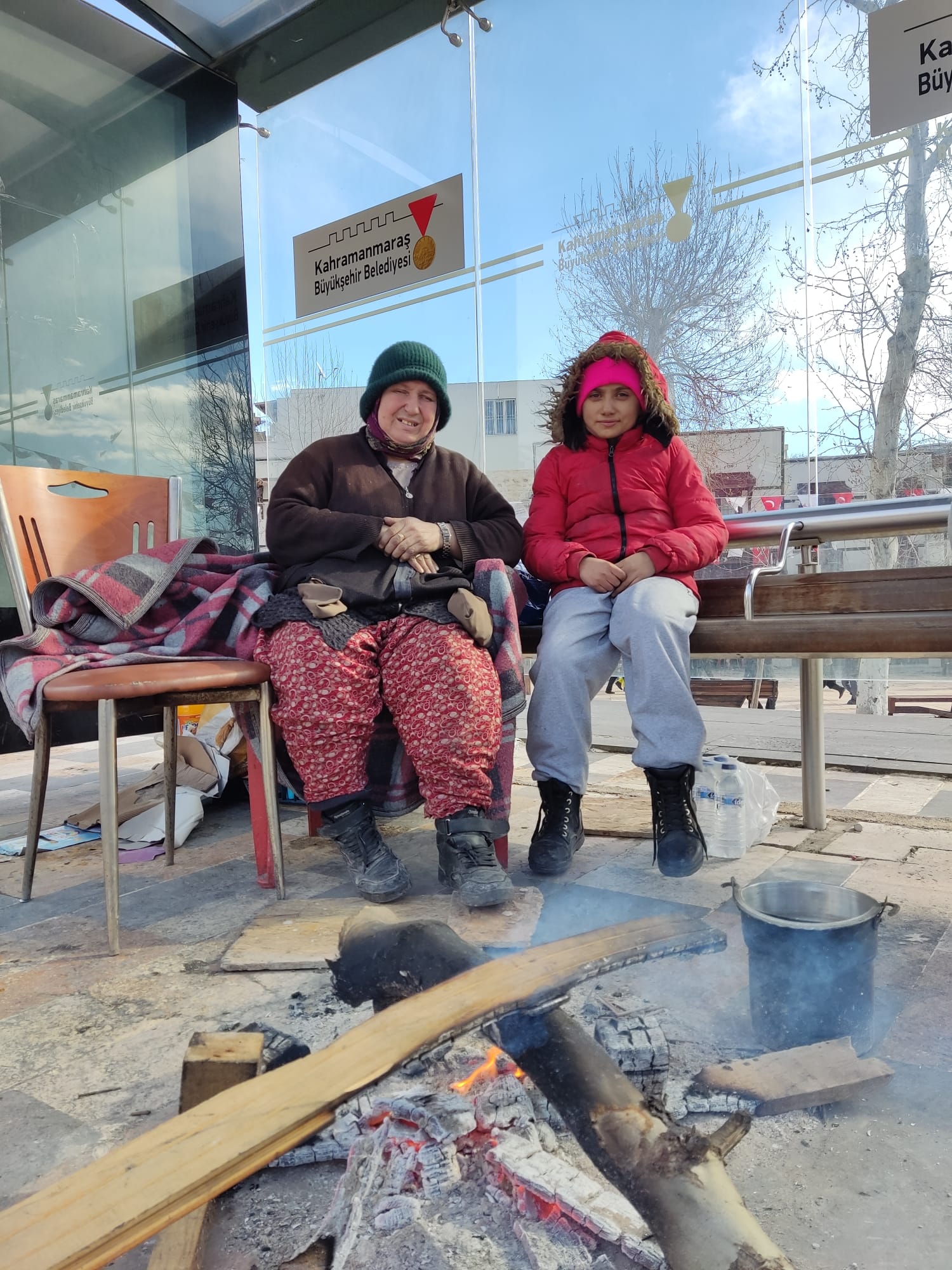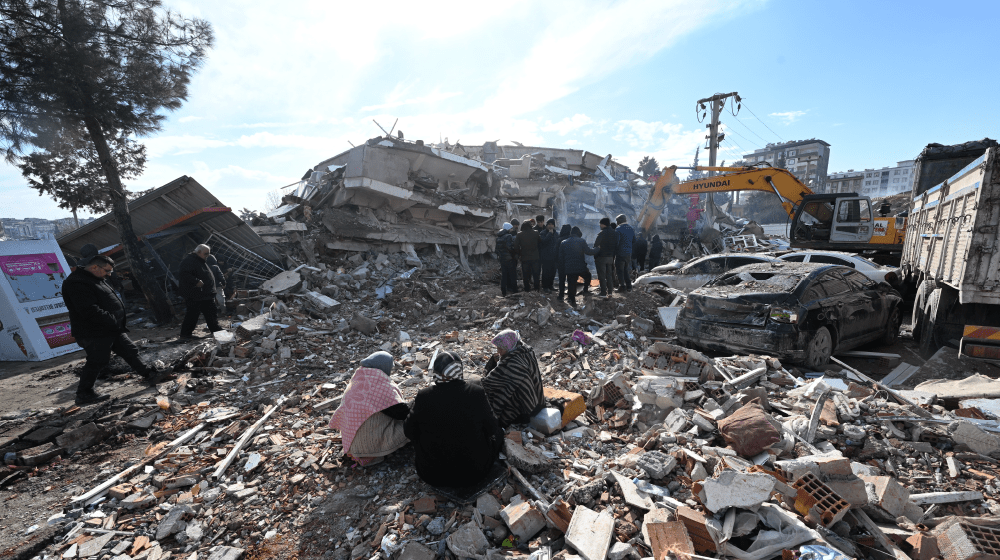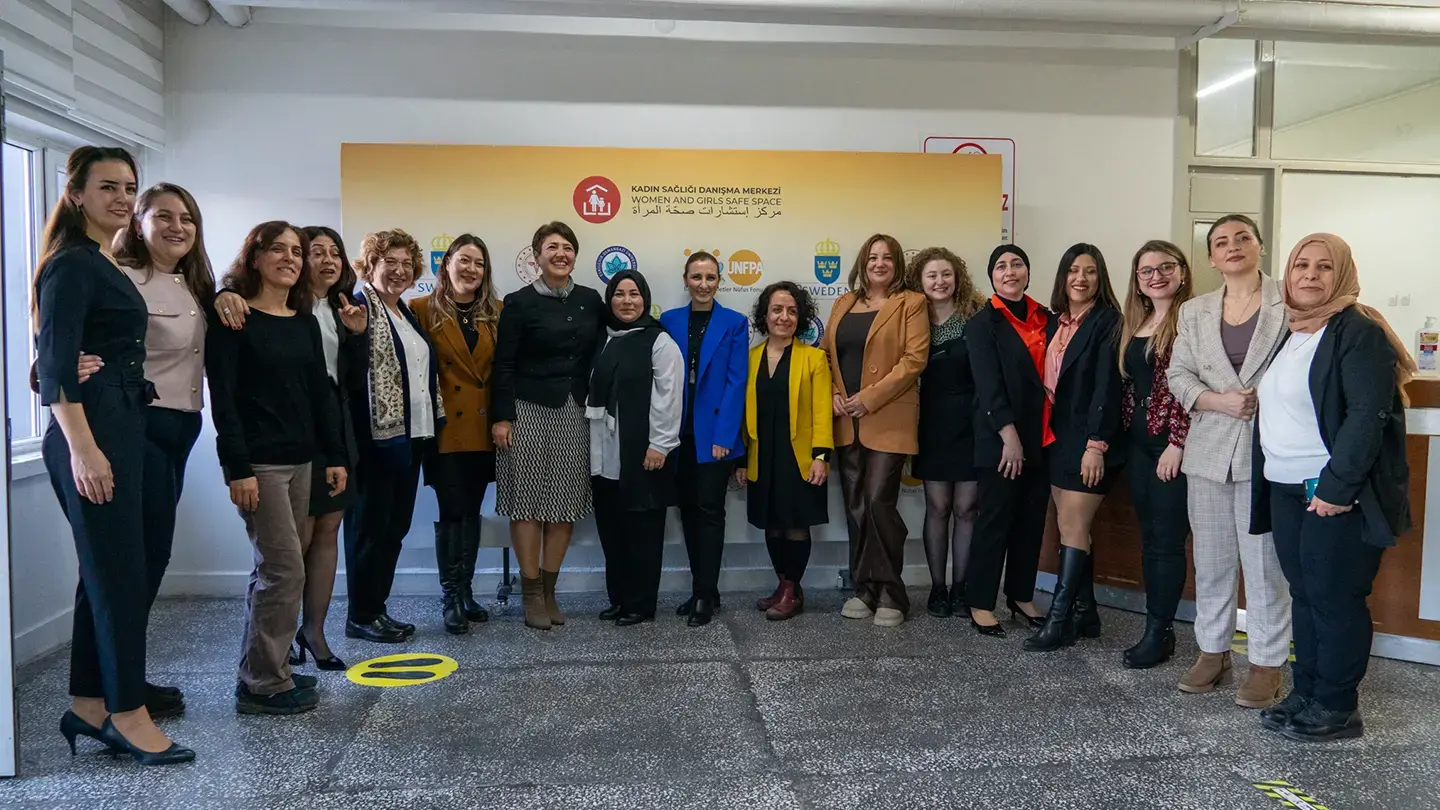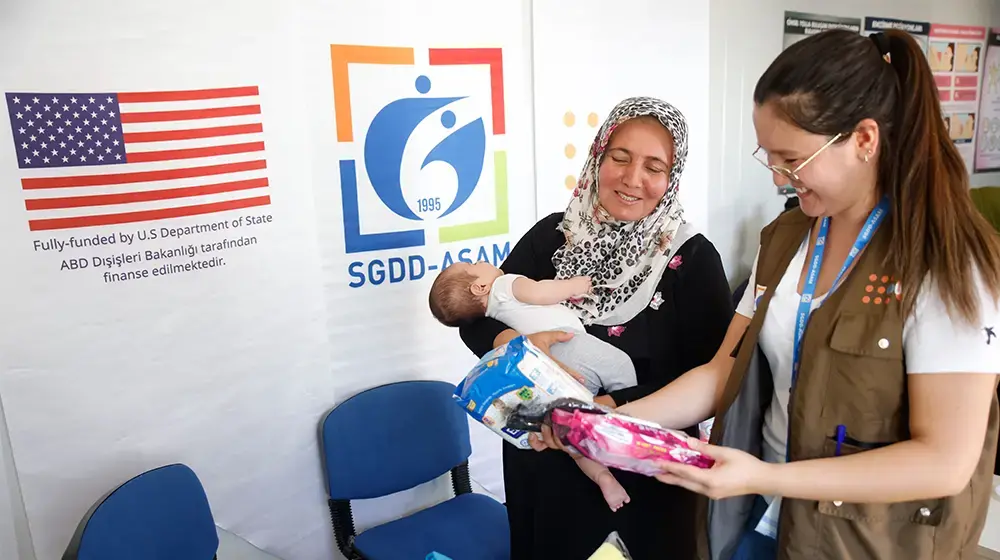Türkiye was hit by two powerful earthquakes that struck the country's southeastern part, affecting 11 cities near the Syrian border on Monday. Over 43 thousand people have died and 108 thousand people have been injured, with the numbers expected to rise in the coming days and weeks. In the meantime, pregnancies do not stop, and neither do childbirths in times of crisis.
At least 15,8 million people living in the region including refugee communities have been impacted by the quakes including about 4,1 million women of reproductive age along with estimated 226 thousand pregnant women who need access to maternal health services. According to UNFPA’s data, almost 25 thousand women are expected to give birth next month.
UNFPA and its partners are working around the clock in the affected regions to respond to the needs for sexual and reproductive health (SRH) and gender-based violence (GBV) services among the most vulnerable refugee populations and host communities. After such a traumatic event, UNFPA is doing its part at least to address women's and girls’ specific needs.
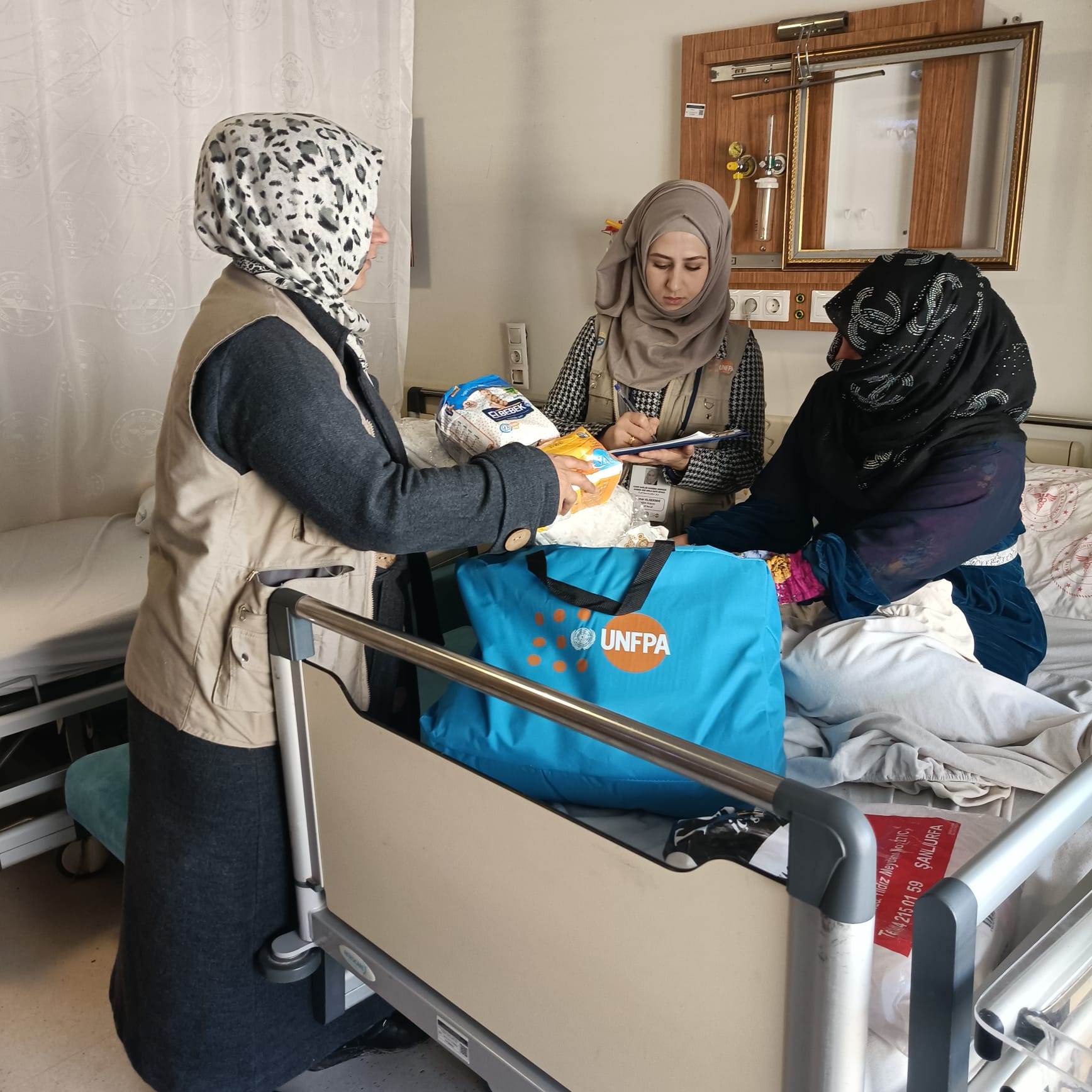
Şanlıurfa is one of these cities where UNFPA is implementing a Women and Girls Safe Space (WGSS) with the Harran University and the Provincial Health Directorate. UNFPA-supported WGSS staff visited Şanlıurfa Training and Research Hospital in Eyyübiye, Şanlıurfa where 100-150 births take place daily. They delivered dozens of maternal kits to pregnant women and those who have recently given birth from both host and refugee communities, affected by the earthquakes in order to provide essential needs for them and the newborns such as soap, baby blankets, diapers, postpartum pads etc. They are also informed on postnatal care.
UNFPA-supported staff feels better since they see a smile on their face for the first time since Monday, and so do the women and girls they served. Women who left their house with nothing and are not able to purchase some fundamental items under these extraordinary circumstances have at least their essential hygiene needs now.
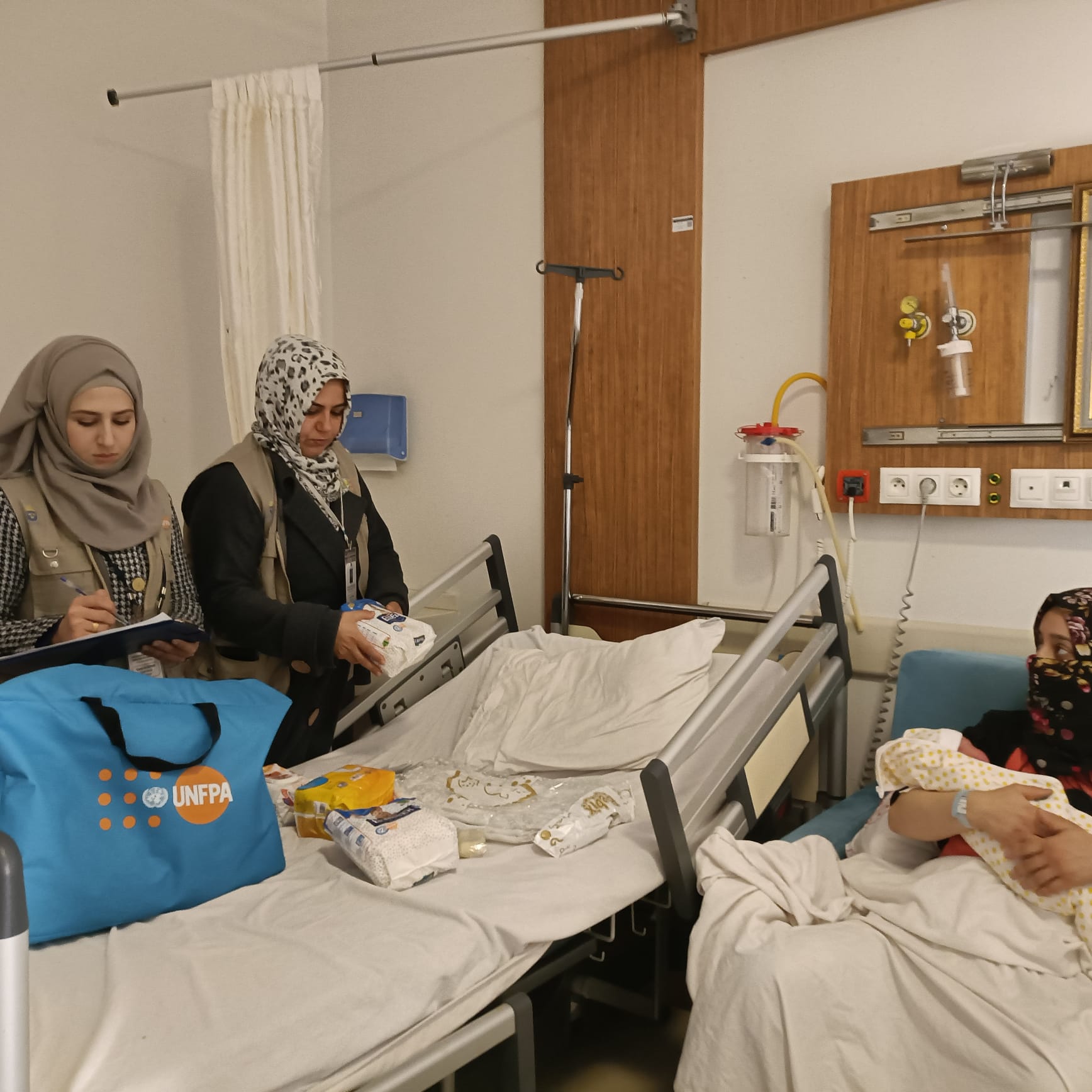
Buseyna is one of them. She came from Adıyaman, one of the most affected cities in the region to Şanlıurfa to give birth since the patient capacity of the hospitals in Adıyaman was full with the quake-injured people. Buseyna and her mother who is a quake survivor asked for help from UNFPA-supported WGSS and gave birth to a baby girl, Meha with their support.
“We were too scared. We left our houses immediately and could not take anything for birth, not a single baby cloth. There was no one to communicate with and no place to stay in Şanlıurfa. We felt helpless because they did not know what to do next. Then, you reached us, helped with the birth and gave us a bag which includes anything we need in the first place,” says Buseyna.
22-year-old Hatice* from Birecik, Şanlıurfa is a survivor too. She and her relatives' houses were damaged. The fear she experienced caused her to give birth earlier. Thankfully, she and her baby are in good health. Yet, right after the birth, another struggle began. She couldn't get any supplies for her baby from the house she left in a hurry. After she received UNFPA’s maternal health kit and postnatal counseling, she feels safer at least for her baby. “I am still scared to go out of the hospital but at least my baby is safe and we don’t have to worry about her hygiene and essential needs,” she says.
UNFPA is in the field to respond to the immediate needs of the affected population, especially women and children. However, We cannot do this alone. UNFPA calls on governments and partners to prioritize the sexual and reproductive health of women and girls and respond urgently to their needs, especially in humanitarian situations.
*Name changed for privacy and protection.
